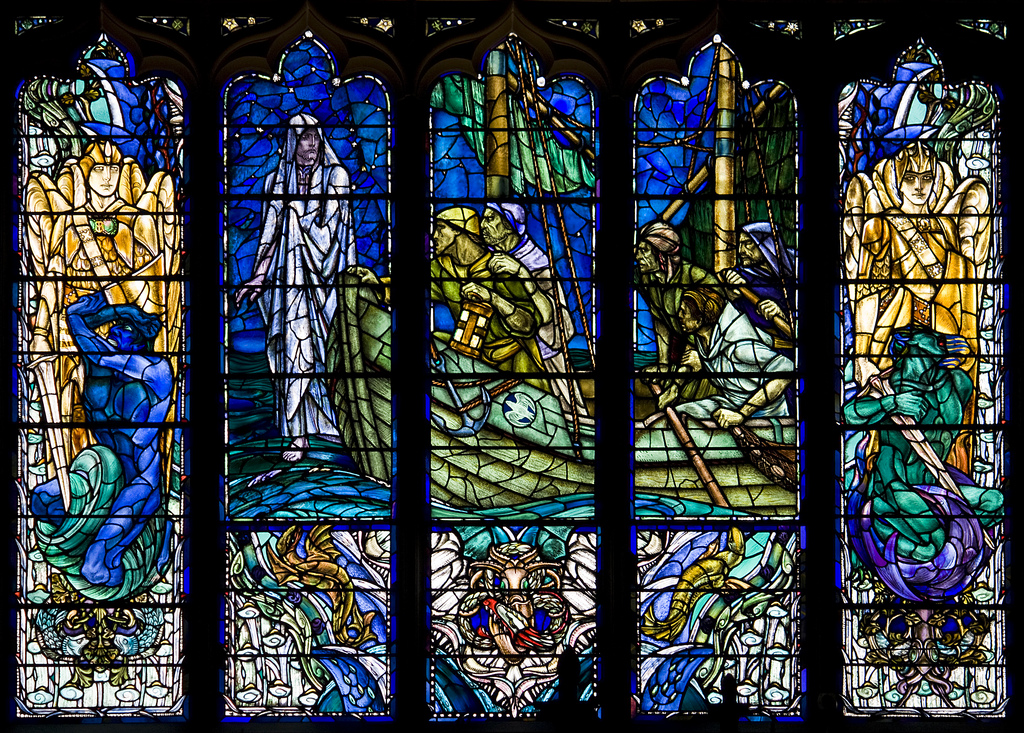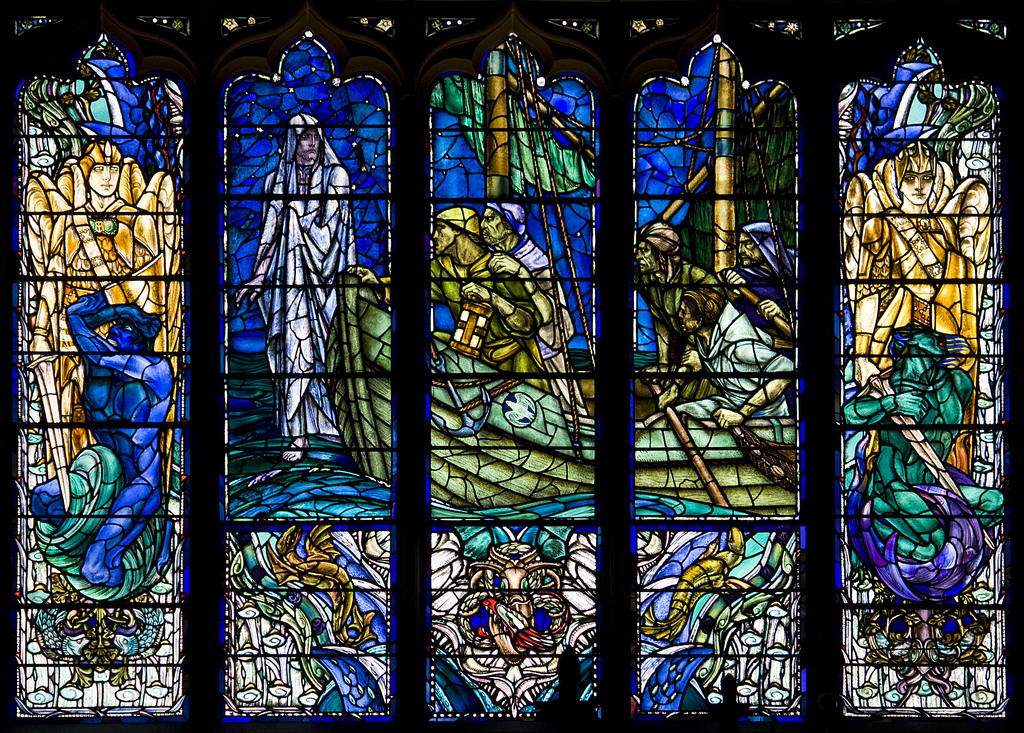那時候,耶穌對猶太人說:「我實實在在告訴你們:誰如果遵行我的話,永遠見不到死亡。」猶太人向他說:「現在我們知道:你附有魔鬼;亞巴郎和先知都死了;你卻說:誰如果遵行我的話,永遠嘗不到死味。難道你比我們的父親亞巴郎還大嗎?他死了,先知們也死了。你把你自己當作甚麼人呢?」耶穌答覆說:「我如果光榮我自己,我的光榮算不了什麼;那光榮我的,是我的父,就是你們所稱的「我們的天主」。你們不認識他,我卻認識他;我若說我不認識他,我便像你們一樣是個撒謊者;但是,我認識他,也遵守他的話。你們的父親亞巴郎曾歡欣喜樂地期望看到我的日子,他看見了,極其高興。」猶太人就對他說:「你還沒有五十歲,就見過亞巴郎嗎?」耶穌回答說:「我實實在在告訴你們:在亞巴郎出現以前,我就有。」他們就拿起石頭來要向他投去,耶穌卻隱沒了,從聖殿出去了。
若望福音 8:51-59
猶太人以世俗的想法去思考耶穌的話,所以只能以耶穌肉身的年齡去推斷祂不可能見過亞巴郎。因此他們會問:「你還沒有五十歲,就見過亞巴郎嗎?」
耶穌試圖向他們解釋祂和天父的關係和祂的天主性,以及回答他們說:「我實實在在告訴你們:在亞巴郎出現以前,我就有。」「以前」,是過去式;「就有」,是現在式,因為祂的天主性沒有分過去或以後,而是永恆存在的。正如天主曾向梅瑟說:「我是自有者。」(出3:14)
可惜猶太人的不信,令他們無法理解天主永恆存在的本質,更令他們想消滅祂。耶穌身為天主,本可把這些想用石頭投向祂的人立刻處死,但天主總是緩於處罰人,反而自己隱沒了。這給我們顯示誰若鄙視祂的話,真理便會從他面前隱沒。所以我們必須以謙卑的態度來迎接主的話,不要因為驕傲或憤怒而抵抗天主的教導。
(本文以英文為準)
Jesus said to the Jews: “Amen, amen, I say to you, whoever keeps my word will never see death.” So the Jews said to him, “Now we are sure that you are possessed. Abraham died, as did the prophets, yet you say, ‘Whoever keeps my word will never taste death.' Are you greater than our father Abraham, who died? Or the prophets, who died? Who do you make yourself out to be?” Jesus answered, “If I glorify myself, my glory is worth nothing; but it is my Father who glorifies me, of whom you say, ‘He is our God.' You do not know him, but I know him. And if I should say that I do not know him, I would be like you a liar. But I do know him and I keep his word. Abraham your father rejoiced to see my day; he saw it and was glad.” So the Jews said to him,
“You are not yet fifty years old and you have seen Abraham?” Jesus said to them, “Amen, amen, I say to you,
before Abraham came to be, I AM.” So they picked up stones to throw at him; but Jesus hid and went out of the temple area.
John 8:51-59
The worldly minds of the Jews are intent on the flesh only; they think only of Jesus' age in the flesh: "Then said the Jews to Him, you are not fifty years old, and have you seen Abraham?" that is to say, "Many ages have passed since Abraham died; and how then could he see your day?"
Our Savior mildly draws them away from their secular view, to the contemplation of His Divinity; Jesus said to them, "Amen, Amen, I say to you, Before Abraham was, I AM." 'Before' refers to the past, 'am', the present. Divinity has no past or future, but always the present; and therefore He does not say, "Before Abraham was, I was": but, "Before Abraham was, I AM": as it is in Exodus 3:14, "I AM WHO I AM." 'Before' and 'after' might be said of Abraham with reference to different periods of his life; 'to be', in the present, is said of the unchanging truth only.
Their unbelieving minds, however, were unable to support these indications of eternity; and not understanding Him, sought to destroy Him, who, had He chosen to exert the power of His Divinity, could have delivered them to immediate death. But He who came to suffer was slow to execute judgment. Instead our Lord hid himself, showing that the truth is hidden to those who despise His words. The truth flees the company of a soul full of pride. His example shows us, that we should in all humility retreat from the wrath of the proud when it rises, than resist it even though we might be able.
參考 References:
Catena Aurea (St. Thomas Aquinas)
Homily 18 on the Gospels (St. Gregory the Great)

